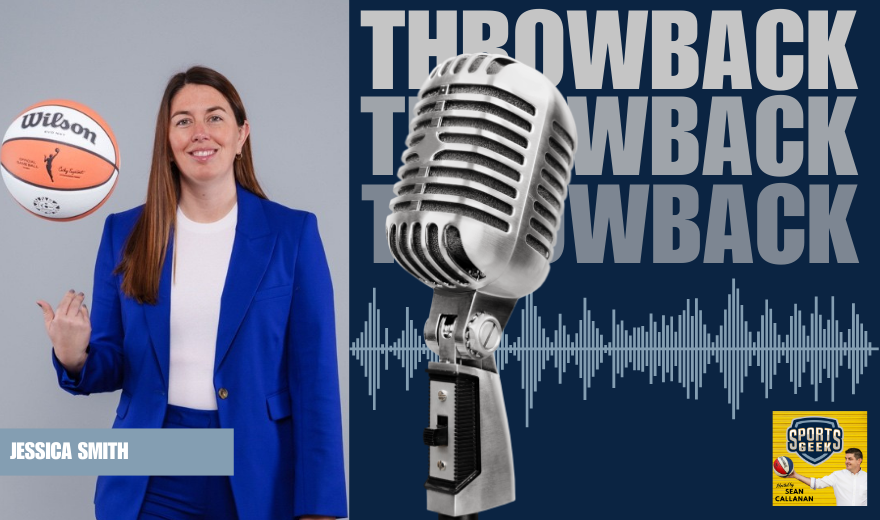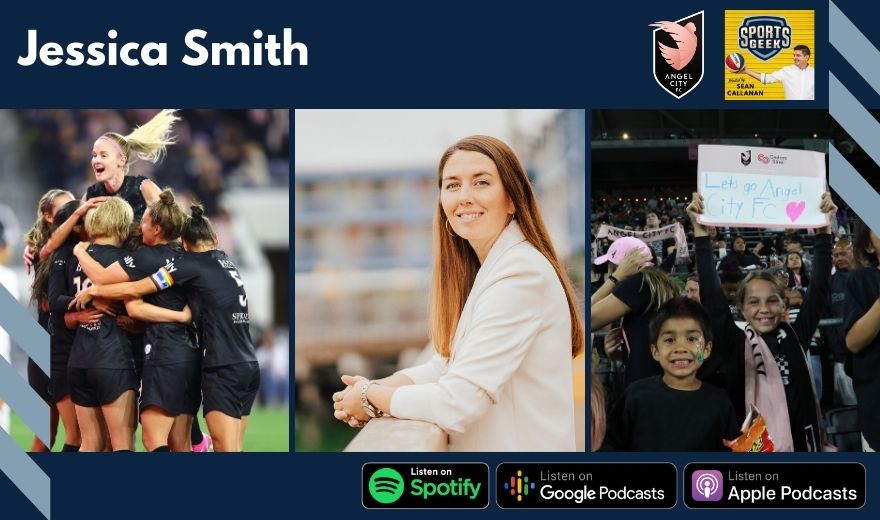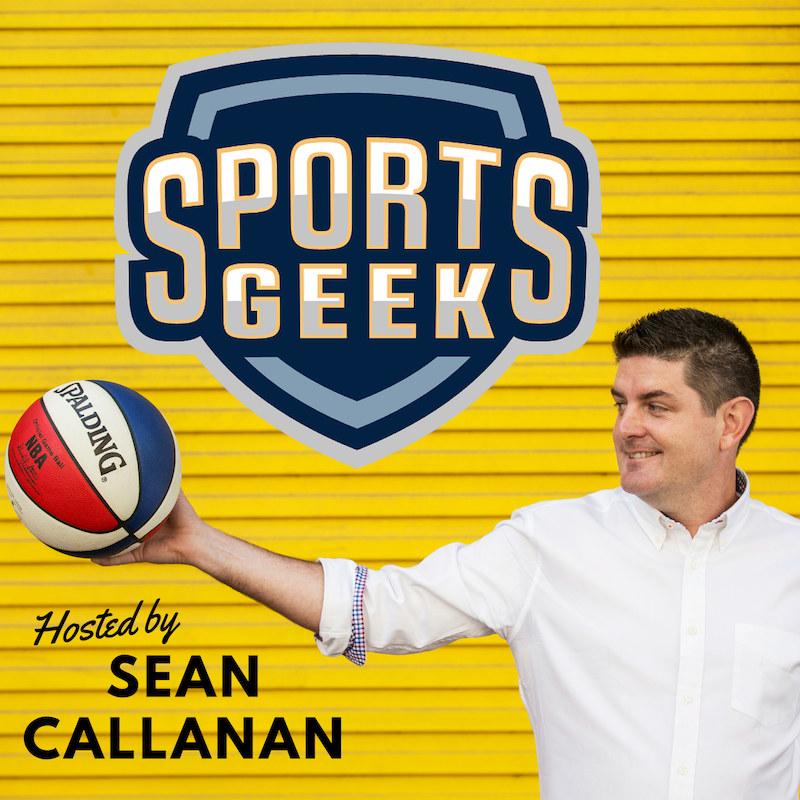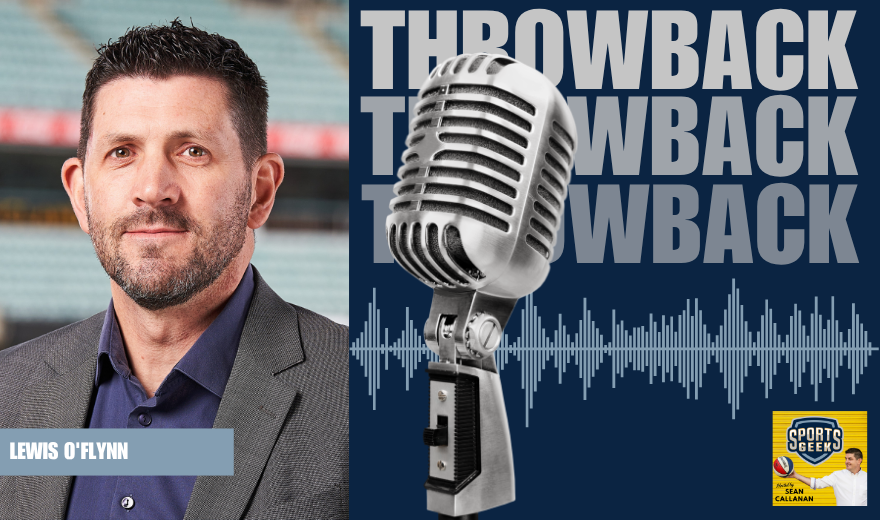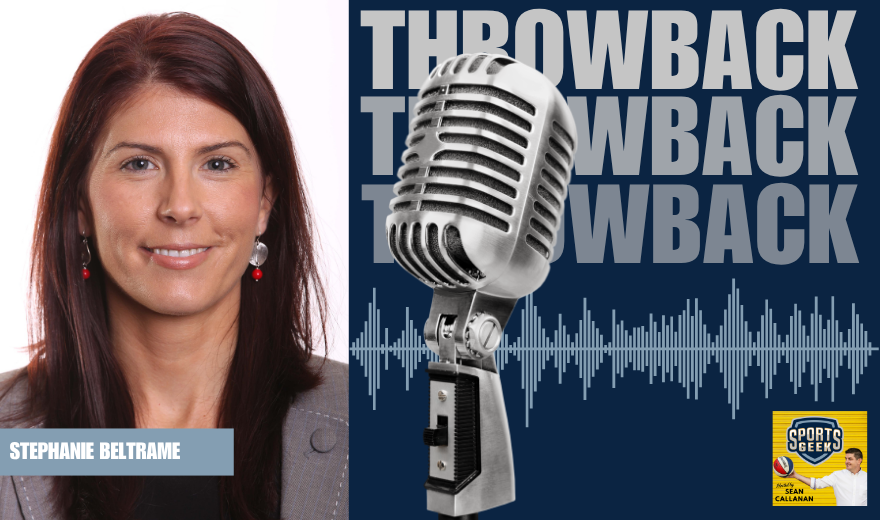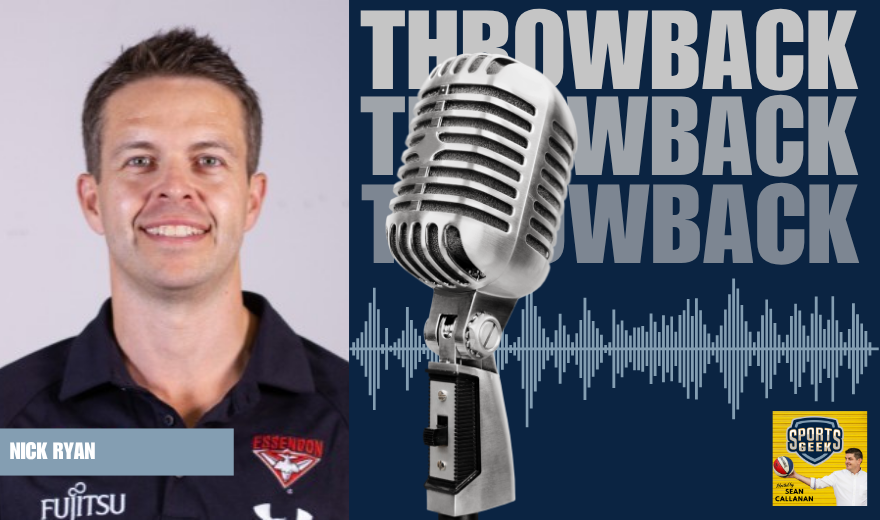In this Sports Geek Throwback episode, Sean Callanan interviews Jessica Smith from episode 316
Can't see podcast player? Click here to listen
Key Takeaways
In this Sports Geek Throwback, Jessica and Sean discusses purpose-driven revenue model that works:
- Traditional sponsorship metrics based solely on media value and eyeballs are becoming less relevant in today's market
- Purpose-driven partnerships create deeper connections with fans and deliver meaningful community impact
- Modern consumers, particularly Gen Z, demand authentic value alignment from sports organisations and their partners
- Innovative revenue models, such as fan-fuelled player funds, can create mutually beneficial ecosystems
- Corporate partners increasingly seek opportunities that demonstrate shared values rather than just brand visibility
This transcript has been lightly edited by AI
Sean: How do you anchor your revenue goals and revenue targets and what you're trying to do in sponsorship? Back to those core values to say that this is the type if you're a sponsor of Angel City FC, you've gotta be aligned and this is what we want. How do you balance that? Cause that's obviously in a tough sponsorship market. And we're seeing different sponsorship products that have been hitting the market and sports have taken them on board and they've fallen over and hurt a lot of people. How do you balance that? I guess that conundrum or is it not a conundrum and you are just really locked in on the values?
Jess: Yeah,it's a good question, and I think there's two pieces to the answer. The first is valuation, and I was just speaking at APW about this a few weeks ago. So first, before you go to market with any type of strategy, you need to understand what you're charging and why, right? Yeah. So we went through the traditional valuation process as teams do, and you go out and say, well, what should we be charging for a Jersey sponsorship? How much overall revenue do you think we should have? And you can kind of back into assets and staff. What can you afford to make this thing go once you can sell things?
Well, we got our evaluation. And it was awful and this is me coming from men's sports traditionally, right? Where they're telling me that the front of our jersey is worth a million dollars and I'm coming from major league soccer, where I know that number is bottom of the barrel. Right? And I start thinking about it a little bit more intuitively. Like why is that the value? Like what's actually going into that? Right? And like Natalie Portman's gonna be wearing this jersey like among many others, but you're telling me that there's no value to that. Or the number of jerseys we're going to sell is dwarfing, again, many of what men's teams are selling and I know that just from being behind the scenes and having that knowledge, but you're telling me it's worthless. Right? So like the number in the marketplace, the celebrities, we have. And you're still telling me it's worth significantly less. And so we challenged that from the start because the evaluation process for us was like, most are like, you know, you take the traditional like, well, women's sports usually get this much well, and you're gonna be in LA so you're gonna get a lot. But that's not a lot because you're not bookmarking us against. Other actual properties that we should be. Right. Given the factors that I outlined, so we went to market we kind of scrapped that a bit, we worked with it, but we made them include some other valuations that were relevant, a lot being through our ownership group at the time, cuz there was actually like, you know, a set thing we could point to. And we went to the market with our 10%. Which folks are aware of now. But really what we did was when we said we don't wanna be a soapbox, and when we thought about these conversations we're going into with, partners, we wanted to go in and say, here's how we're gonna change the world, and here's how I want you to do that with us. That was really important to us. Versus just saying, look how great we are. I wanna take all your money, and of course you're gonna get like the shoulder effect of being affiliated with us, but when you actually think about what we've accomplished together, it was missing that layer. So that's valuation part one. Part two is going to market and actually testing it, right? Yeah. Because we were going out to market with not a firm valuation because it didn't exist and a story that was what I just said. We're here to change the world. I want you to be part of this with us. We are not going in someplace saying, I'd like you to take a look at how many radio media value pieces we're going to have. And our LED is gonna be broadcast all over the globe. Not accurate, right? And that's actually not the strength of what they're buying. So we built something where, and we now talk about it the way that we say you have to value your values, right? Because we innately understood at the beginning from that valuation process to going to market that there's a benefit for brands, of course, aligning with an organization like ours, right? Is it the number of impressions they're going to get from traditional men? No, not traditionally anyways, not through TV viewership, et cetera. It's getting there. But the number of games, like you can dig into all the reasons why, right? But what there is a trust and in today's market, Number one, you have Gen Z and they're not going to affiliate with anybody or anything that they're not morally aligned with, right? So if you're a brand, a sports team, an athlete and they're not loyal, so like them to a team, right? They are loyal to athletes too, right? So you just have to be innately aware of like that generation, kind of like taking, taking hold of the sports industry. The second piece that we really looked at and what I call them is a covid. The whole globe just went through something and we were early days of that. We were building this whole thing out in the fall of 2020 and every single person I know is now thinking about things differently. They know who they're spending their time with. They understand the work and home balance that they're seeking to have. Balance is the wrong word, but I should say like differentiating time.If they're thinking about what brands and athletes, et cetera that they're following that's worth something that you can actually buy a product that shows consumers that you have the same values that that product does. And we went to the market with that. So I pitched our front kit 40 times in two weeks. And I just told Julie listen, we're gonna go for this and this is what our strategy is. The market will tell us very quickly if we're out of our minds but I innately knew from obviously having decades of work inside these same rooms with these same decision makers, knowing what they're looking for, seeing brands out there. Also seeking like how are they going to start showing consumers not just telling consumers that they have these values? And so we were able to go in and provide that, not only high visibility, not only the right thing to do by supporting women's sports but also we're making actual change. So like with our 10% model, you look at DoorDash, we're gonna feed a million people in the course of our partner. We sat back down for the recap, like that's what we're doing. When you look at Birdie's the sleeve partner on our jersey, we created an internship program for diverse high school students because we believe even college is a barrier to entry for both sports and fashion. We're gonna sit down and look at the alumni of that group, of humans who said, access to both of us and got out into the world. And so we now have 27 partners and each one has a reason beside us, making real change on top, of course the incredible content we have, the fellowship, game day visibility, et cetera that they're getting.
Sean: I mean there's a real shift in like that valuation piece because that traditional model is media buyers. How many eyeballs am I getting? Where are those eyeballs? Who are those eyeballs? And it's eventually just a media valuation calculation and go, oh, here it is. Well, you can just buy programmatic or you can just buy TV spots at NBC if you just want your brand there. But it's that attachment to, I wanna be associated with. And it's not just successful, like what I said I wanna be associated with the Lakers. Because they're a really big brand and have a long history of being successful. It's like they wanna be associated partners like DoorDash wanna be associated with your message. And then it becomes part of your pitch, corporate social responsibility, what they want to do in the community. And so your sponsorships are not traditional in that they can tick a few more boxes that they've got. Not to mention the social digital impact where you've got a few levers there to be able to pull with a large group of owners and influencers that say, Hey, I'm supporting this cause I'm a part of the team. So it really is like the metrics and the valuation piece hasn't caught up with. I guess that's the pitch you are doing. But the pitch has more sponsors. Folks are out there trying to say, well if I was just selling eyeballs, you could just go to Mrs. Zuckerberg and buy eyeballs.
Jess: Exactly right. And a lot of the CMOs we talk to, that's what they say. They say the core of sponsorship is actually like alignment of values and marks and logo affiliation.That's why you do partnerships. So the media of course is important, but it's not the same bucket necessarily of consideration. So it ends up being two different reasons that they're looking to buy. And we've actually taken it, it's not just the partnership model with purpose. So we actually have a ticketing model with the purpose as wild, the fan fueled player fund, where 1% of net ticket proceeds actually go towards the players that help us sell tickets. So they're using their personal likeness on their accounts and we're able to say it's educating fans that buying a ticket matters. So it's going back into that education of consumers, of showing up matters, buying merchandise matters, supporting our partnerships matter. Like they all will push this forward in a big way.
Listen To Sports Geek
Recent Sports Geek Reads
- NFL’s New TV Deals, Media Layoffs, and AI’s Super Bowl Clash
- 49ers vs Rams in Melbourne, NFL TV Deals & AFL Play
- Super Bowl LX’s $10m Ad Boom, NFL’s Paris Play & How Streaming Changes the Game
- Seahawks Up for Sale & Super Bowl Ads Hit $10M
- NFL’s $25B Milestone and Madrid Expansion: Super Bowl Betting Projected to Hit $1.7B
- From NFL’s Media Dominance to Gemini AI Navigation: Content Studios Reshape College Recruiting


